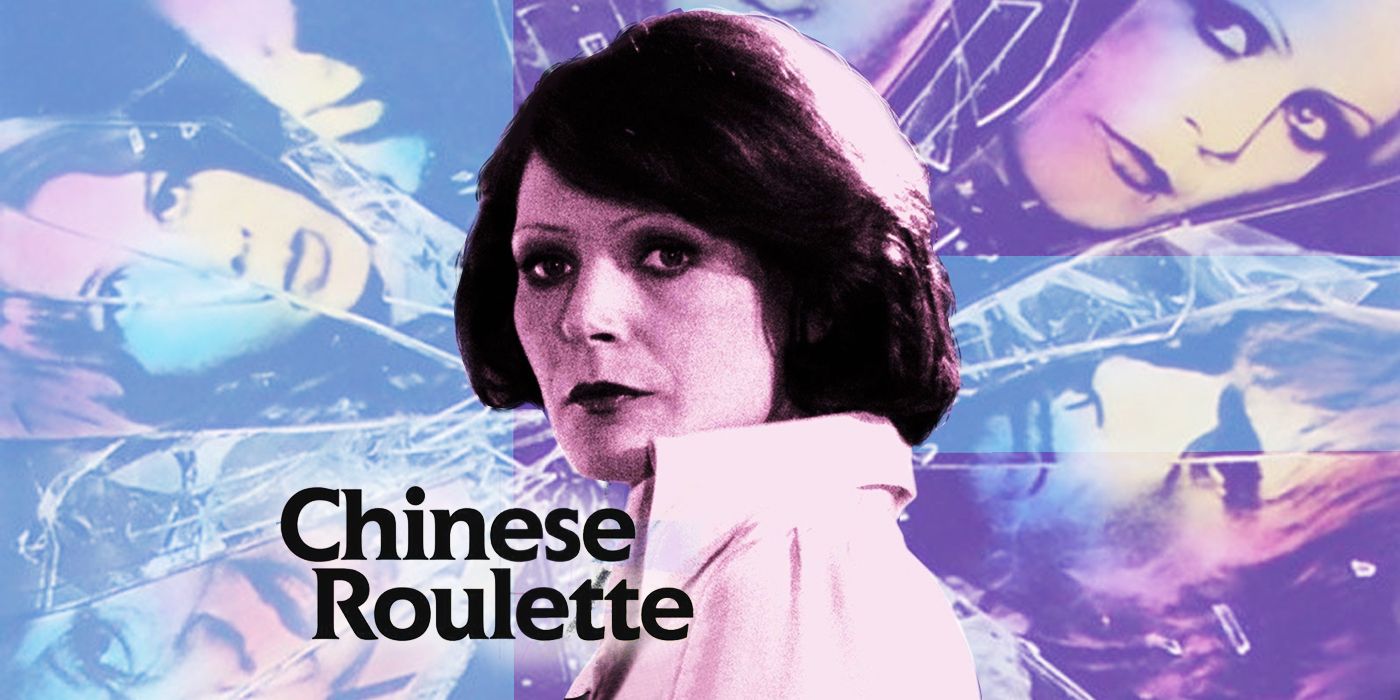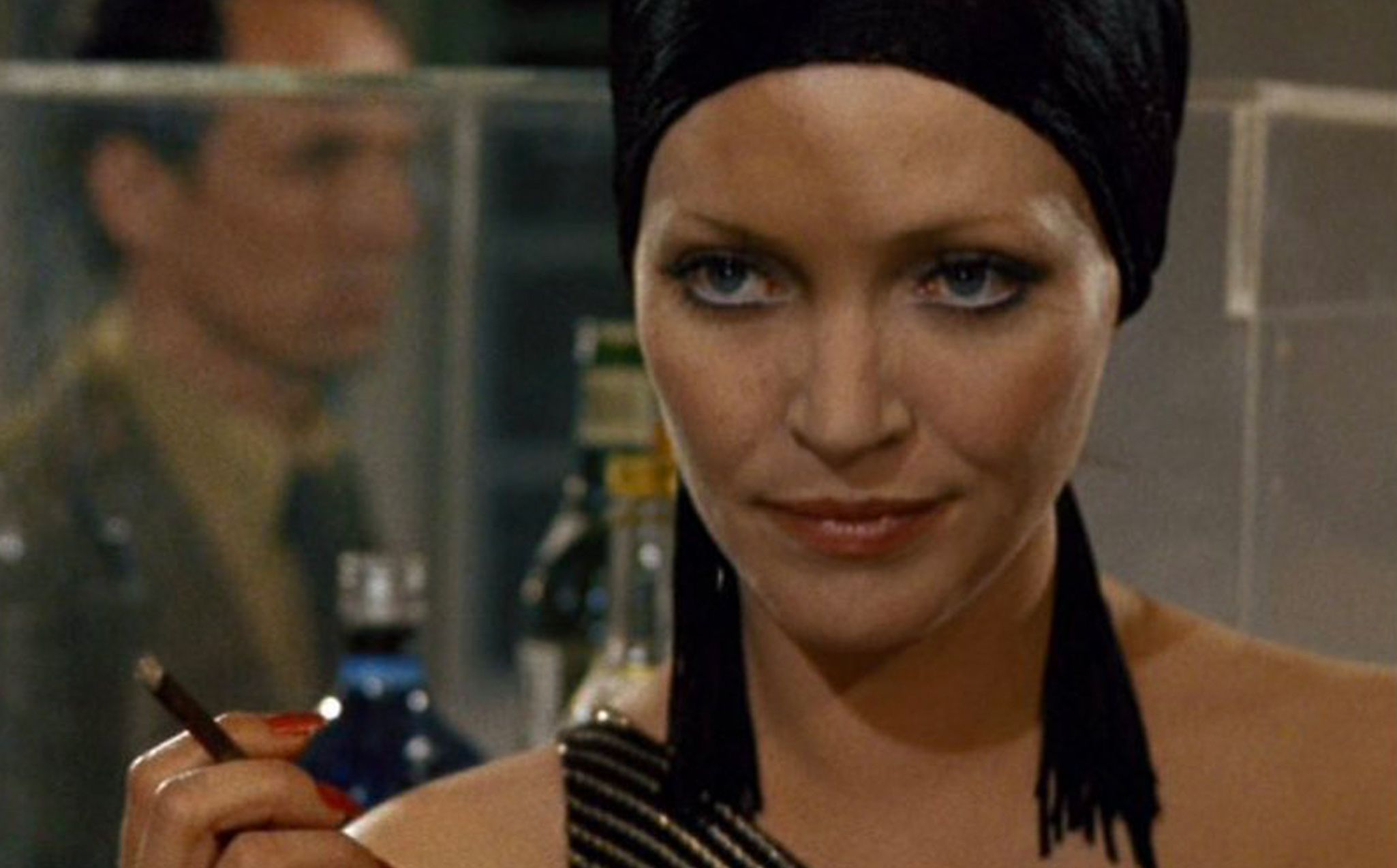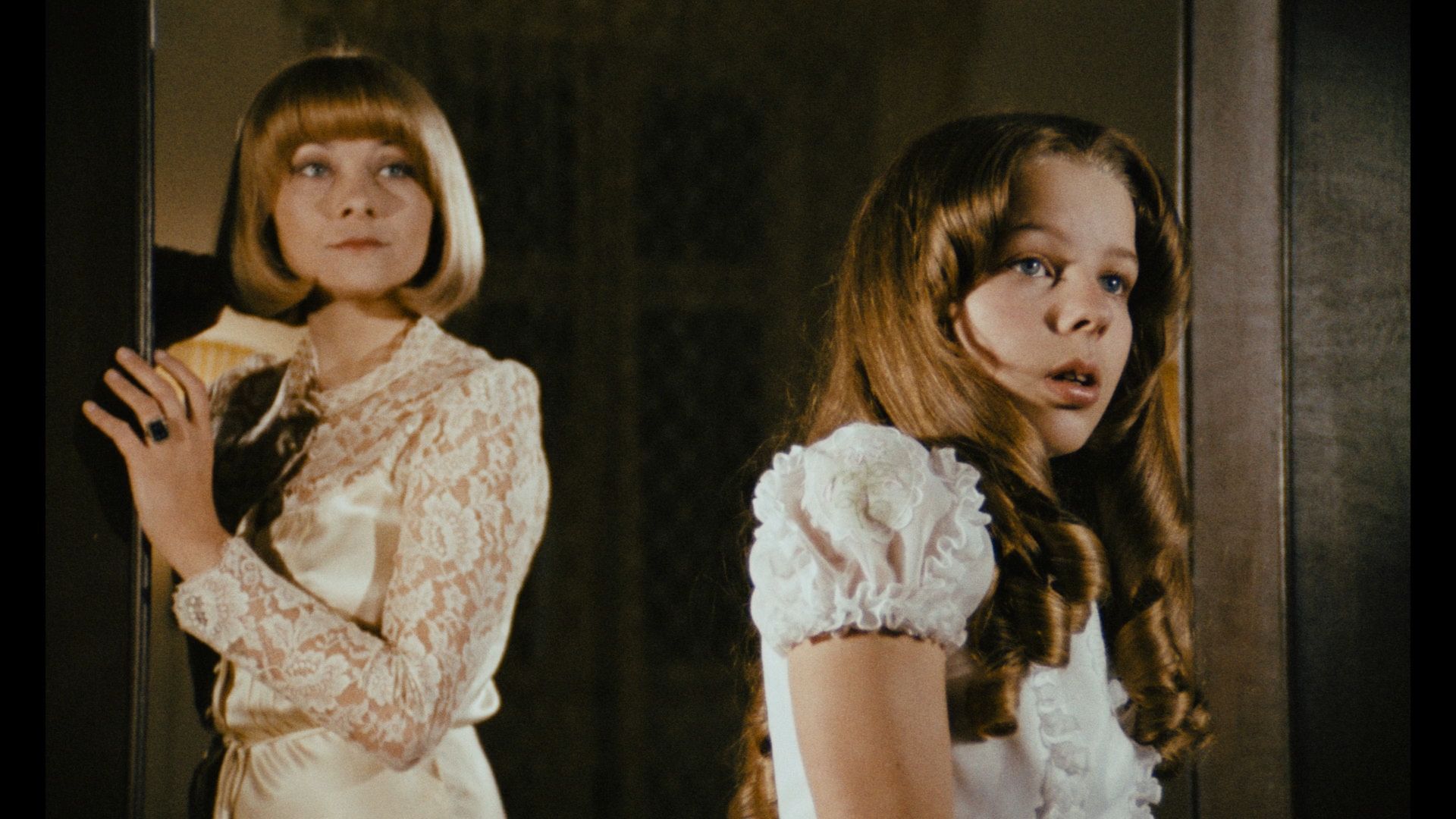Cinema doesn’t get much bleaker than the films of German New Wave director Rainer Werner Fassbinder. For evidence of this, one need not look any further than his bizarre 1976 chamber drama Chinese Roulette, a film in which every single character is controlling and cruel. Simple in scope but wide ranging in stylistic and thematic complexities, it sees Fassbinder returning to his two great obsessions: Douglas Sirk and fascism.
Sirk was a director from the era of classic Hollywood, known for melodramas bursting with exaggerated emotion, layered irony, and extravagant visual composition such as All That Heaven Allows (1955) or Written on the Wind (1956). Fassbinder was a huge fan, and seeked to expand on Sirk’s brand of emotionally-intimate-yet-intellectually-detached human drama in order to explore the psychological prevalence of fascism in everyday life. Fassbinder’s generation in Germany was the first to really embrace cinema since the time of the Third Reich, and his films show a country still grappling with past ideologies. Chinese Roulette serves as a particularly startling and impactful evocation of these preoccupations, both in its directness and its relentless brutality.
A description of the film’s plot may, at first glance, appear to be the stuff of quirky romantic comedies. A cheating husband (Alexander Allerson) secretly retreats to the family’s country home with his mistress (French New Wave icon Anna Karina), only to find his wife (Margit Carstensen) already there, in the midst of her own lustful affair with his work assistant (Ulli Lommel). Fassbinder allows the absurdity of this material to be acknowledged, but presents it with such a straight-faced intensity that the viewer is forced to empathize with the nerve-wracking position it puts the characters in. The camera of cinematographer Michael Ballhaus circles repeatedly around the two couples as they discover each other’s infidelity, to disorienting and claustrophobic effect. The unfaithful four’s immediate reaction is rather unsettling. Genuine emotions are repressed as they all quickly collapse into bourgeois niceties, greeting each other and shaking hands while sharing a laugh over their shared embarrassment. The unstated principle between them being that individual authenticity isn’t nearly as important as conformity to the collective illusion of stability.
Suggestions of repression in the characters run deeply through the film. The cheating couples are received at the country home by mother and son housekeepers (Fassbinder regulars Brigitte Mira and Volker Spengler). As Spengler’s housekeeper puts away one couple’s luggage in an early scene, he seems to lose control of himself and rifle through a suitcase. He is momentarily gripped with excitement as he finds a phallic sex toy, but quickly stops himself from caressing it, instead violently berating himself in a nearby mirror. A lack of morality in the characters is also widespread, extending far beyond their collective infidelity. There are hints throughout that the entire group is variously involved in unspecified organized crime, with mysterious murders and arrests discussed between guests and housekeepers alike.
Such immorality and repression are on full display as the day at the country house wears on. The central cheating couple never erupts into the fight that the viewer fully expects them to. The ensemble instead opts to pretend as if nothing is wrong well into the night, going so far as eating a sumptuous dinner together as a group. This continues even as both husband and wife begin to make passive aggressive digs at one another, each fondling their respective lovers in full view of all. Sirk is unmistakably conjured during these moments, with Ballhaus’ camera gliding around the four’s frigid faces in a manner that accentuates the distances between them. Around the dinner table, the quartet speaks with an openly xenophobic tone about past travels abroad, their frustration at the current situation ostensibly taken out on unseen others.
The extramarital lovers act particularly uneasy with the tension of the night, but are kept from leaving by the wedded pair, who appear to get an almost sadistic rise out of prolonging this discomfort. There’s an unspoken sense that the spouses are challenging one another about who will erupt first, and their confrontational glares at each other are emphasized in forceful zooms and tight close ups. During their meal, the younger housekeeper recites some prose he has written for the distressed guests. With obscure references to a woman hidden inside him, it further suggests sexual feelings he may be repressing in his daily life. It also contains some decidedly egomaniacal ideas of man as an all-powerful god, which the married couple seems especially taken by.
Andrea Schober portrays the enigmatic and mischievous Angela, preteen daughter to the married couple and victim of an undefined illness that has left her physically disabled. She is soon revealed as having set the stage for this tense encounter. Well aware of the affairs of both her parents, she previously ensured that neither of the housekeepers were informed of the two couples’ simultaneous intentions to stay in the country home, thereby keeping the housekeepers from being able to stop the atrocious encounter. The young girl eventually shows up to the dreadful dinner that she has orchestrated, entering the home on crutches as her deafmute caretaker (Macha Méril) follows with an armful of monstrous dolls. Fassbinder often used inanimate figures to mirror his characters, and there are indeed eight of these grotesque toys (half for the pair of cheating couples, two for the housekeeping duo, and one each for Angela and her caretaker).
The stage is then set, with these eight characters present, for the psychologically grueling finale. Angela explains her reasoning for the calculated attack on her parents to a housekeeper in the night. The child feels as though they blame her for all the problems in their lives, neglecting and mistreating her because of it. She has essentially become their scapegoat, just as the Jews once were for the Nazis but on an intimate scale. This isn’t inconceivable with what the viewer is shown of the family’s interactions. As Angela first appears at the dinner, her mother is so infuriated that she tries to physically strike her, only stopping herself when she remembers the present company. Even more shocking is when Angela takes a walk the next morning. Her mother aims a gun at her through a window from inside, but is stopped before she can fire.
The culmination of Angela’s attack comes in the form of a question-and-answer game, from which the film gets its title. Chinese Roulette proves to be a very cruel game, one that quickly has the group verbally assaulting each other. In typical Sirkian melodrama fashion, pregnant glances and gestures during this war of words are amplified by the tense style, often saying more than anything the characters can articulate themselves. All the verbal violence eventually leads to the game’s final question: who among those present would be the best suited to run a concentration camp? After the relentless slew of hatred, sadism, immorality, repression, depravity, and general cruelty the viewer has borne witness to over the course of the film, it’s clear that it could be absolutely anyone.



